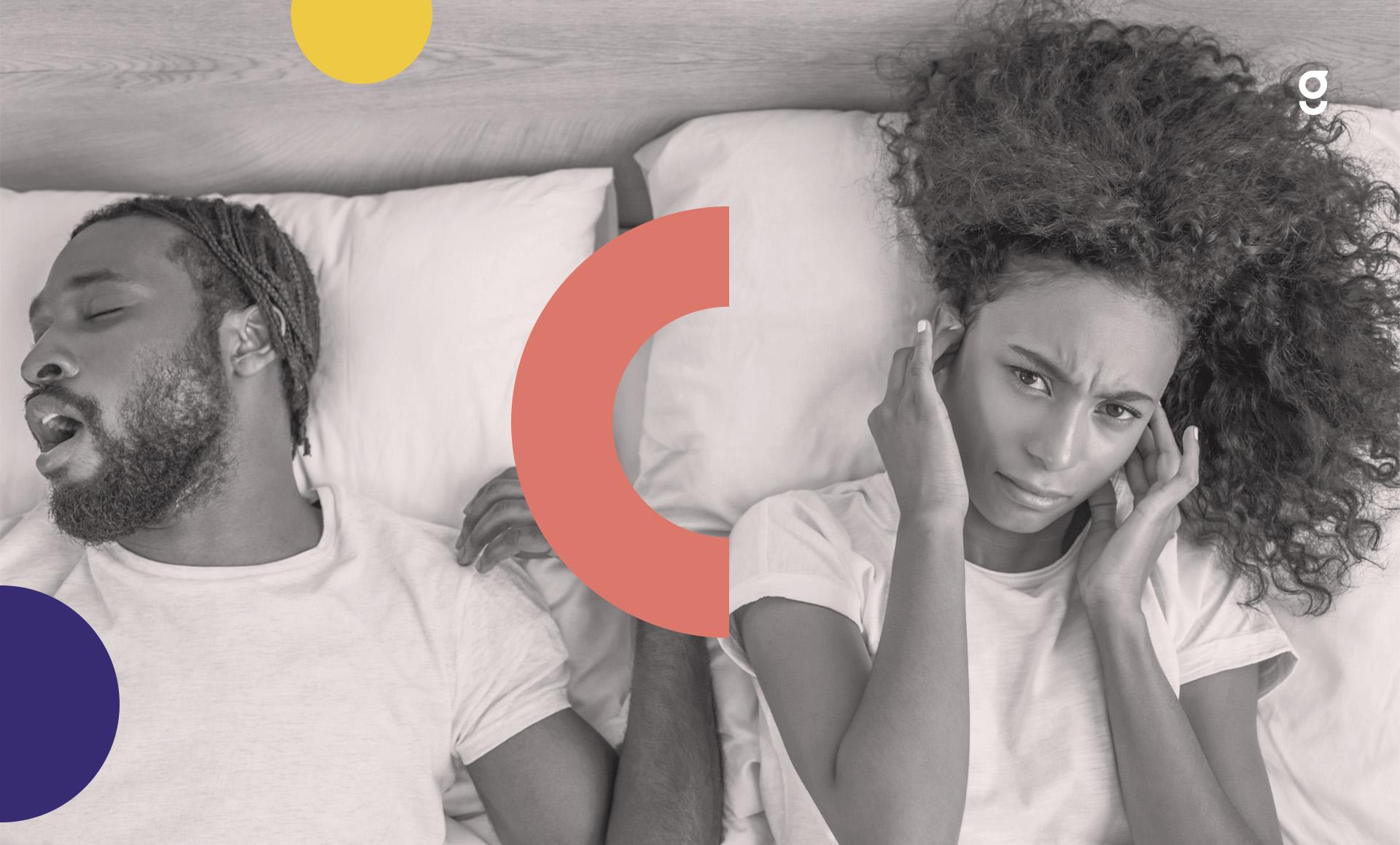Snoring and Sleep Apnea: What You Need to Know

People snore from time to time, often with colds or congestion. However, if you snore or gasp most or all of the time, it may be obstructive sleep apnea (OSA).
Contents:
What Are The Risk Factors For OSA?
What Is The Treatment For OSA?
Why Is It Important To Treat OSA?
What Is Snoring?
(name=snoring) Snoring is the sound caused by a blocked upper airway when sleeping. It is quite common, especially in people who carry extra body weight. Usually, snoring isn't serious, however it can interfere with sleep and be annoying to others.
Snoring may also be a symptom of sleep apnea. That is why frequent snorers should be checked their doctors.
What Is Sleep Apnea?
(name=apnea) Sleep apnea is a general term that means to stop breathing during sleep. There are different types of sleep apnea; by far the most common, is obstructive sleep apnea (OSA). Sleep apnea causes trouble sleeping, but it isn’t the same thing as insomnia.
Obstructive sleep apnea (OSA) means there are periods during sleep when breathing briefly stops or slows down, due to a blocked upper airway.
How Common Is OSA?
(name=common) Although the estimate of the number of people with OSA varies, it is likely to be at least 5% of the population.
What Are The Risk Factors For OSA?
(name=risk) There are factors that increase the risk of OSA including:
Excess weight, especially in the neck and abdomen
Older age
Male gender
Female after menopause
Facial or upper airway abnormalities
Family history of OSA
There are also some medical conditions that are associated with OSA, like gastroesophageal reflux disease (GERD), diabetes, hypertension, heart disease, stroke, and depression.
What Are The Symptoms of OSA?
(name=symptoms) The symptoms of OSA may be mild, moderate, or severe and include:
Snoring, gasping, choking, snorting, and interrupted breathing during sleep (often reported by bed partner)
Headaches, dry mouth when waking up
Sleepiness during the day
Insomnia or trouble falling or staying asleep (especially in women)
Waking up with the need to urinate
How Is OSA Diagnosed?
(name=diagnosis) Either those with OSA or their sleep partners may identify symptoms indicating possible sleep apnea. Sleep apnea may also be suspected when a person is under care for other medical problems. In either case, a sleep specialist and sleep study are recommended.
Polysomnography (PSG)
PSG is done in a sleep lab with a technician. There is continuous monitoring of breathing, brain waves, heart rate, eye and muscle activity, etc. PSG identifies apnea and other sleep disorders. PSG is the gold standard sleep study.
Home Sleep Apnea Tests (HSAT)
Sleep studies may be done at home with portable monitoring devices. There are different types of HSAT, depending on what is monitored. After HSAT, PSG may still be necessary.
What Is The Treatment For OSA?
(name=treatment) OSA treatment may be medical or surgical, behavioral, or a combination of both.
1. Medical / Surgical Treatment
Positive Airway Pressure (PAP) Therapy
Depending on sleep study results and other factors, positive airway pressure (PAP) therapy may be recommended for moderate to severe OSA. With PAP, air is delivered to maintain an open airway.
There are different ways that it is administered; continuous positive airway pressure (CPAP) and auto-titrating positive airway pressure (APAP) are the most common methods for OSA. Once PAP is started, the person and the device should be checked frequently.
Oral Appliances
Custom-made appliances for the mouth may be used to treat mild to moderate OSA. They help to keep the upper airway open by maintaining the position of the jaw or tongue. Oral appliances are less effective than PAP therapy, but some people prefer it.
Upper Airway Surgery
Surgery may be an option when enlarged tonsils or adenoids block the airway. It may be a second-choice treatment when PAP and oral appliances aren’t effective or well-tolerated.
2. Behavioral and Other Treatment
Behavioral treatments include weight loss, exercise, positional therapy, and avoiding alcohol and sedatives near bedtime. They may be used to treat people with mild OSA, or could be complementary to medical/surgical treatment for moderate to severe OSA.
Goodpath offers behavioral strategies as part of our sleep program. Behavioral changes are an important part of the treatment for OSA. Take our free sleep assessment to get started with the Goodpath sleep program.
As with medical treatments, OSA outcomes (like improved sleep and less daytime sleepiness) should be checked after starting behavioral therapies.
Weight Loss
Extra weight is a risk factor for OSA. Weight loss, along with medical therapy, is recommended for those with OSA. Losing weight may not cure OSA, but it can lessen the severity and improve overall health. Weight loss may be achieved through healthy eating and regular exercise.
Exercise
Exercise not only helps with weight loss, but can also improve the severity of OSA symptoms and decrease sleepiness.
Positional Therapy
Back-sleeping may increase episodes of apnea in some people. Side-sleeping is recommended, but may be challenging to maintain. Positional therapy is a complementary strategy to help back sleepers with OSA using simple methods involving tennis balls or pillows . Sometimes special devices with alarms or vibrations help.
Sleep Hygiene
Sleep hygiene measures can help you get quality sleep. Getting enough sleep (7 to 8 hours each night) can improve OSA, while too little sleep may worsen it. Avoid alcohol, prescription pain and sleep medicines like sedatives, because they may also worsen OSA.
Gastroesophageal Reflux Disease (GERD) Treatment
GERD and OSA have a close relationship. Treating GERD may help to lessen the symptoms and severity of OSA, and treating OSA may also lessen GERD symptoms in return. Treatment may include medicines and dietary and lifestyle changes.
Nasal Dilators (Strips)
Nasal strips may help those with snoring related to congestion or narrowed nasal passages. They may improve sleep quality and be helpful for some people with OSA.